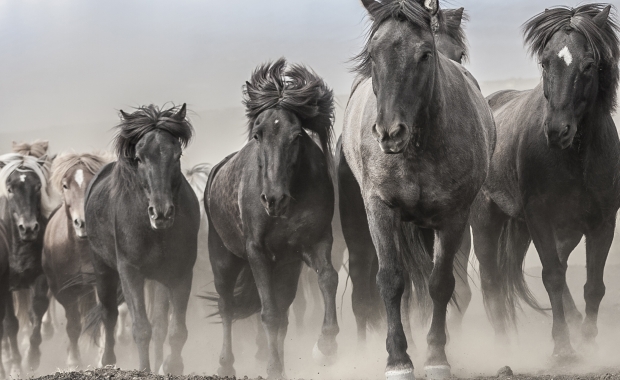Before cars took over transport in this rugged land, Icelanders used to refer to the Icelandic horse as “the most useful servant” (“þarfasti þjónninn”).
This relatively small breed has been developed through centuries in Iceland. Although the animals are small, even pony-sized, they are in fact horses and not ponies.
Read more: Why are Icelandic horses not called ponies?
The Icelandic horse has a lively temperament and a strong but docile character. It’s considered to be extremely friendly, making it highly sought after by breeders around the world.
More than one thousand horses are exported each year, most of them to Germany. The importing of horses is prohibited by law, due to the risk of disease—meaning that only Icelandic breeds exist in the country.
There are around 80,000 horses in Iceland. You can’t help noticing them while travelling around the island. You should stop by and say hello.
Read more: Witness Iceland's largest horse round up in Skagafjörður, North Iceland
Before cars took over transport in this rugged land, Icelanders used to refer to the Icelandic horse as “the most useful servant” (“þarfasti þjónninn”).
This relatively small breed has been developed through centuries in Iceland. Although the animals are small, even pony-sized, they are in fact horses and not ponies.
Read more: Why are Icelandic horses not called ponies?
The Icelandic horse has a lively temperament and a strong but docile character. It’s considered to be extremely friendly, making it highly sought after by breeders around the world.
More than one thousand horses are exported each year, most of them to Germany. The importing of horses is prohibited by law, due to the risk of disease—meaning that only Icelandic breeds exist in the country.
There are around 80,000 horses in Iceland. You can’t help noticing them while travelling around the island. You should stop by and say hello.
Read more: Witness Iceland's largest horse round up in Skagafjörður, North Iceland







